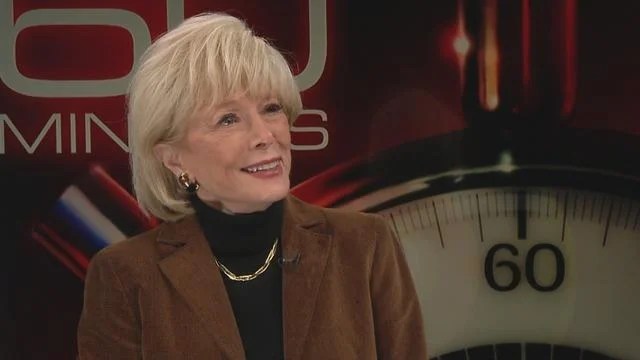When it comes to investigative journalism, few programs stand out as prominently as "60 Minutes." This iconic television news magazine has been at the forefront of impactful storytelling since its debut in 1968. Over the decades, its reporters have not only uncovered critical truths but have also shaped public opinion and influenced policy decisions. With a commitment to integrity and investigative rigor, "60 Minutes reporters" have taken on some of the most pressing issues of our time, engaging audiences week after week.
From in-depth interviews with world leaders to investigative pieces on corporate malfeasance, the work of "60 Minutes reporters" transcends mere news reporting. These journalists delve into the heart of complex stories, often facing personal and professional risks to bring the facts to light. Their ability to connect with the audience and present compelling narratives is what sets them apart from typical news anchors, making them household names in the realm of journalism.
In a media landscape that is increasingly fragmented, "60 Minutes" remains a bastion of journalistic excellence. It continues to attract viewership with its thought-provoking content, showcasing the tireless efforts of its reporters. This article will explore the fascinating world of "60 Minutes reporters," highlighting their contributions, challenges, and lasting impact on journalism and society as a whole.
What is the History of 60 Minutes?
"60 Minutes" was created by Don Hewitt and made its first appearance on television on September 24, 1968. The program quickly gained a reputation for its hard-hitting journalism and unique format that combined investigative reporting with interviews and commentary. Over the years, "60 Minutes" has adapted to changes in the media landscape, yet it has maintained its commitment to quality journalism.
Who Are Some Notable 60 Minutes Reporters?
Throughout its history, "60 Minutes" has featured a number of celebrated reporters. Some notable figures include:
- Mike Wallace
- Diane Sawyer
- Morley Safer
- Lesley Stahl
- Anderson Cooper
What Impact Have 60 Minutes Reporters Made?
The impact of "60 Minutes reporters" extends beyond the small screen. Their investigative pieces have led to significant changes in legislation, public awareness, and corporate accountability. For instance, exposés on unethical practices in various industries have prompted reforms that protect consumers and restore public trust in institutions.
What Are the Challenges Faced by 60 Minutes Reporters?
Investigative journalism is not without its challenges. "60 Minutes reporters" often face obstacles such as limited budgets, tight deadlines, and the risk of backlash from powerful individuals or organizations. Additionally, in an age of misinformation, the pressure to verify facts and maintain credibility is paramount.
How Do 60 Minutes Reporters Prepare for Their Stories?
Preparation is key for "60 Minutes reporters." The investigative process typically involves extensive research, interviews with experts, and fieldwork to gather evidence. Reporters often spend months or even years working on a single story to ensure that all angles are covered and that the final product is compelling and informative.
What Makes 60 Minutes Unique Among News Programs?
Unlike traditional news broadcasts, "60 Minutes" takes a deep-dive approach to storytelling. The program often dedicates significant airtime to exploring complex issues, allowing reporters to present a comprehensive view. This depth of coverage, combined with the emotional resonance of personal stories, sets "60 Minutes" apart from other news programs.
What are the Personal Details of Some 60 Minutes Reporters?
| Name | Birthdate | Notable Work | Awards |
|---|---|---|---|
| Mike Wallace | May 9, 1918 | Interviews with world leaders | Multiple Emmy Awards |
| Lesley Stahl | December 16, 1941 | Political coverage | Emmy Award, Edward R. Murrow Award |
| Anderson Cooper | June 3, 1967 | Reporting on global crises | Emmy Award |
What is the Future of 60 Minutes Reporters?
As the media landscape continues to evolve, "60 Minutes reporters" face both challenges and opportunities. The rise of digital media and changing viewer habits require adaptation and innovation. However, the core principles of investigative journalism—truth-seeking, storytelling, and accountability—will remain as relevant as ever. The dedication of "60 Minutes reporters" to these ideals ensures that the program will continue to be a vital source of information and inspiration for future generations.
How Can Viewers Support 60 Minutes Reporters?
Supporting "60 Minutes reporters" involves staying informed and engaged with the stories presented on the program. Viewers can also advocate for quality journalism by subscribing to reputable news outlets, sharing stories on social media, and participating in discussions about important issues. By fostering a culture that values investigative journalism, audiences can help ensure that "60 Minutes" and its reporters continue to thrive.
In conclusion, the legacy of "60 Minutes reporters" is marked by courage, integrity, and an unwavering commitment to uncovering the truth. Their contributions have shaped our understanding of the world and continue to challenge the status quo. As we look to the future, the role of investigative journalism remains as crucial as ever, and "60 Minutes" will undoubtedly continue to be a leading force in this important field.




